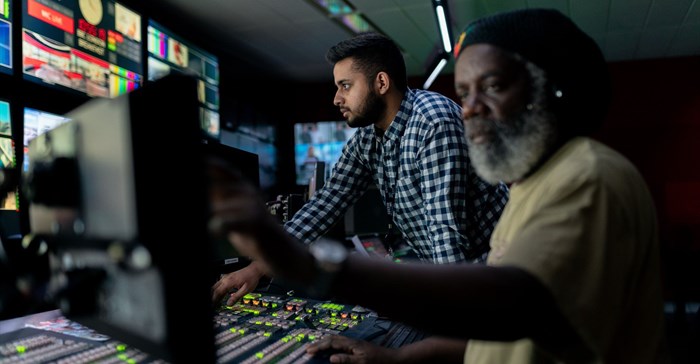The future of AI, blockchain, IoT and 5G is convergence

According to Statista, though, investment in AI slowed in 2022, and Crunchbase shows the trend continuing through the first half of 2023 and beyond.
“Out of 38 new unicorns in 2023, AI companies represent eight new unicorns, including two from this past month,” reports Crunchbase News senior data editor Gené Teare.
“Companies categorised as AI in Crunchbase raised $25bn in the first half of 2023, representing 18% of global funding. That includes the $10bn funding to OpenAI led by Microsoft in January. While that’s down from the $29bn invested in H1 2022, by comparison, it is higher as a proportion of total funding.”
The downward trend in AI investment is closely tied to an overall decline in seed and angel funding. This hasn’t stopped adoption of new technologies with 72% of business leaders wanting AI adoption to ramp up within their organisations within the next three years.
Coming together
This appetite for automation and increased machine learning is also driven by networking speed improvements and a dramatic increase in computing power over the last couple of years.
AI and cloud computing allows businesses to become more insight-driven and find patterns that exist within data far more easily, which can enhance efficiency and surface new solutions.
Organisations can use AI to automate essential operations and develop analytical capabilities that could free up employee time to devote to higher-value strategic initiatives.
Adding a network of IoT devices and sensors to these cloud capabilities can enable an enhanced layer of data gathering and create more opportunities to deploy machine learning algorithms.
The rise of private 5G, non-proprietary radio access networks (Open RAN) is further accelerating these adoptions.
“Open RAN is the game-changer. Essentially, it disaggregates the software and hardware components of the network infrastructure, making it easier and more economically viable to provide internet in remote areas,” explains president and GM of the Cisco Asia Pacific & Japan service provider business Sanjay Kaul.
Private 5G networks can enable more robust communications for IoT devices like autonomous drones but still coexist with LTE and Wi-Fi solutions, creating an interconnected network that is flexible enough to scale alongside business ambitions.
Tying it all together
“One of the most promising intersections of technology is the convergence of blockchain, IoT, and AI. Together, these technologies bring about a myriad of possibilities,” writes Heath Muchena, founder of Proudly Associated and author of Blockchain Applied.
“Blockchain provides a secure and transparent mechanism for recording transactions, IoT devices generate massive amounts of valuable data, and AI has the power to analyse and learn from this data, delivering intelligent insights and automating processes.”
The union of these technologies allows businesses to establish a robust and secure environment that fosters data integrity, seamless data sharing, automated transactions, and real-time insights. It opens the doors to a plethora of applications across sectors such as healthcare, logistics, supply chain, and finance.
Despite this potential for convergence, there is a significant funding gap driven by uncertainties around regulations and demonstrated use cases of these modern technologies.
The European Union is the first major government trying to address this issue and has selected 20 use cases from 90 submissions to its European Blockchain Regulatory Sandbox. This project will open a cross-border dialogue between regulators, supervisors, private companies and public authorities to find a responsible way to deploy this technology.
“The future of business lies in the effective integration and utilisation of digital technologies. AI, blockchain, cloud computing, and data analytics are integral parts of this transformation, each playing a vital role in shaping business models, operations, and strategies,” continues Muchena.
“To embrace the new dawn of business efficiency, businesses must be ready to step into the world of AI and blockchain convergence, leveraging their combined potential to create a sustainable and prosperous future. The possibilities are limitless, and the opportunity is ripe for the taking. It's not a question of if, but when.”

Related
Huawei swoops in to continue the AI race at MWC 5 Mar 2025 Seacom's NextGen Programme is shaping Africa's future tech leaders 27 Feb 2025 Salt Typhoon cyberattack hit Cisco vulnerability in SA 21 Feb 2025 Ask these questions when integrating AI into your business 21 Feb 2025 Cisco launches SA PoP for Webex Calling and Contact Centre 30 Jan 2025 RedCap will finally fulfil 5G prophecy 14 Jan 2025 5 key focuses global CMOs have prioritised for 2025 relevant for local CMOs 14 Jan 2025 #BizTrends2025: Enhanced digital enablement – the future of long-term insurance in South Africa 13 Jan 2025




